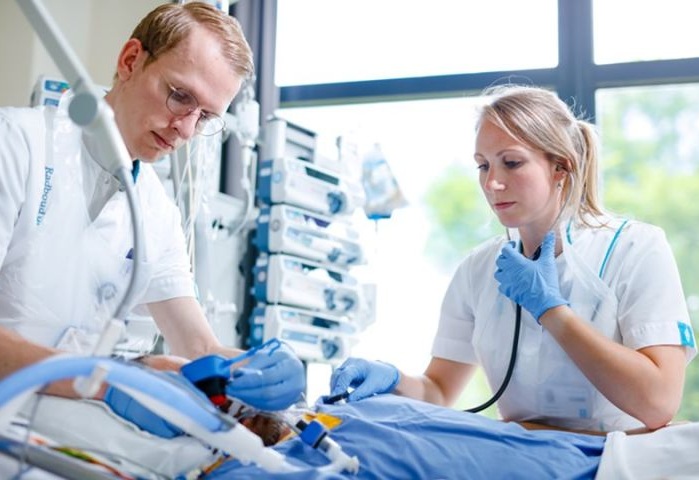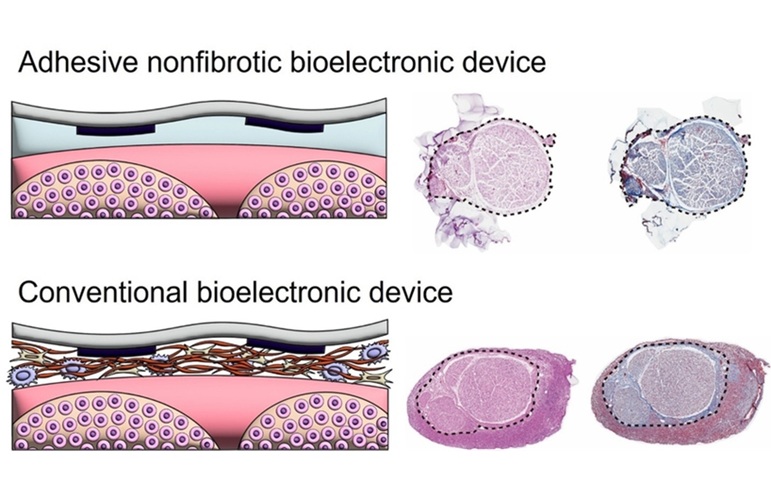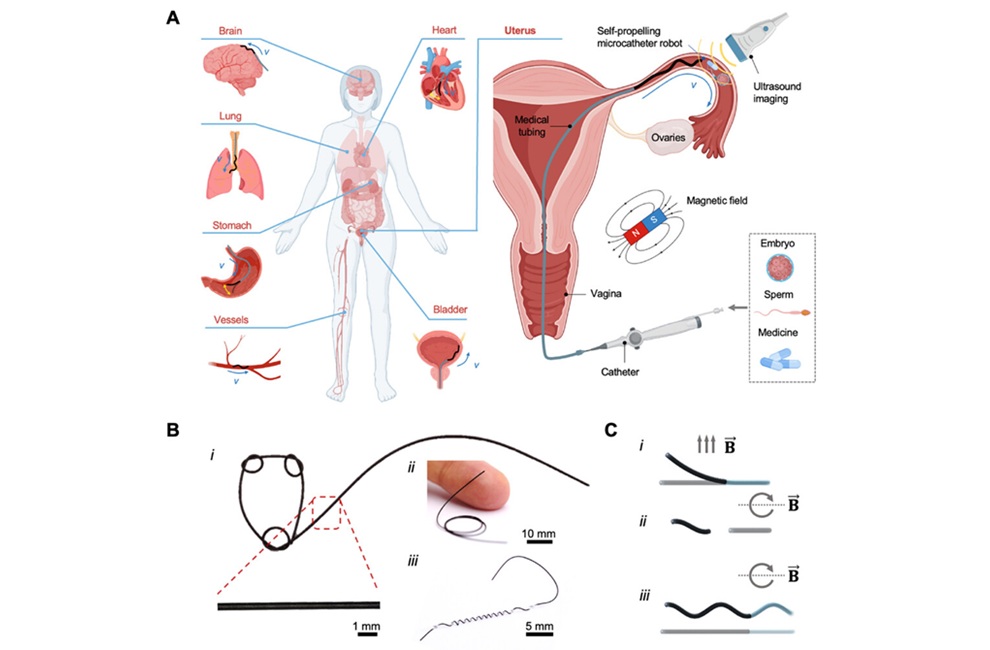Prehabiltation Prepares Cancer Patients for Surgery
|
By HospiMedica International staff writers Posted on 21 Dec 2016 |
A four-week prehabilitation program is sufficient to modify exercise behaviors and improve preoperative functional walking capacity in surgical colorectal cancer patients, according to a new study.
Researchers at McGill University (Montreal, Canada), the University of Toronto (Canada), and other institutions conducted a study to assess if a four-week prehabilitation program that includes exercise, nutritional supplementation, and counseling on relaxation techniques is sufficient to modify exercise behaviors and improve functional capacity of elderly patients scheduled for colorectal cancer surgery. During the study, 57 patients were assigned to prehabilitation and 59 were assigned to a matched control group.
The Community Healthy Activities Model Program for Seniors (CHAMPS) questionnaire was used to measure physical activity levels, while the six-minute walk test (6MWT) was used for assessment of functional walking capacity. Measurements were collected at baseline and at the time of surgery. After four weeks, 70% of the patients in the prehabilitation group had doubled the number of hours they spent exercising, and as a result had increased the distance they were able to walk in six minutes by a significant 24 meters.
This was in marked contrast to the patients in the control group, who tended to exercise less over the four-week period between diagnosis and surgery. Patients in the prehabilitation group also significantly increased the amount of moderate and vigorous intensity physical activities that they performed at the time of surgery, with a greater proportion meeting current physical activity guidelines, as compared to the control group. The study was published in the January 2017 issue of Supportive Care in Cancer.
“Surgery places tremendous physical stress on the body in a very short period of time. So over the past 10 years, some doctors and kinesiologists have started getting their patients ready for surgery in the same way that you would prepare an athlete for an event, through individually tailored exercise programs that challenge the body and allow adaptations to occur before their operations,” said senior author kinesiologist Celena Scheede-Bergdahl, of McGill University. “And we're seeing that people have a better recovery as a result.”
According to the latest figures from the World Health Organization (WHO; Geneva, Switzerland), colorectal cancer is now the third most common cancer in women around the globe and the second most common cancer in men. The recovery process from this major abdominal surgery is often slow and difficult, partly because of the poor state of physical fitness that many patients have going into the operation; typically, six months after surgery only one in five patients have regained their previous level of physical activity. Prehabilitation could help many colorectal cancer patients recover faster.
Related Links:
McGill University
University of Toronto
World Health Organization
Researchers at McGill University (Montreal, Canada), the University of Toronto (Canada), and other institutions conducted a study to assess if a four-week prehabilitation program that includes exercise, nutritional supplementation, and counseling on relaxation techniques is sufficient to modify exercise behaviors and improve functional capacity of elderly patients scheduled for colorectal cancer surgery. During the study, 57 patients were assigned to prehabilitation and 59 were assigned to a matched control group.
The Community Healthy Activities Model Program for Seniors (CHAMPS) questionnaire was used to measure physical activity levels, while the six-minute walk test (6MWT) was used for assessment of functional walking capacity. Measurements were collected at baseline and at the time of surgery. After four weeks, 70% of the patients in the prehabilitation group had doubled the number of hours they spent exercising, and as a result had increased the distance they were able to walk in six minutes by a significant 24 meters.
This was in marked contrast to the patients in the control group, who tended to exercise less over the four-week period between diagnosis and surgery. Patients in the prehabilitation group also significantly increased the amount of moderate and vigorous intensity physical activities that they performed at the time of surgery, with a greater proportion meeting current physical activity guidelines, as compared to the control group. The study was published in the January 2017 issue of Supportive Care in Cancer.
“Surgery places tremendous physical stress on the body in a very short period of time. So over the past 10 years, some doctors and kinesiologists have started getting their patients ready for surgery in the same way that you would prepare an athlete for an event, through individually tailored exercise programs that challenge the body and allow adaptations to occur before their operations,” said senior author kinesiologist Celena Scheede-Bergdahl, of McGill University. “And we're seeing that people have a better recovery as a result.”
According to the latest figures from the World Health Organization (WHO; Geneva, Switzerland), colorectal cancer is now the third most common cancer in women around the globe and the second most common cancer in men. The recovery process from this major abdominal surgery is often slow and difficult, partly because of the poor state of physical fitness that many patients have going into the operation; typically, six months after surgery only one in five patients have regained their previous level of physical activity. Prehabilitation could help many colorectal cancer patients recover faster.
Related Links:
McGill University
University of Toronto
World Health Organization
Latest Surgical Techniques News
- Minimally Invasive Surgery Proven Safe and Effective for Complex ‘Whipple’ Procedure
- Catheter-Based Procedures Offer Less Invasive Option for Treatment of Valvular Disease
- Laparoscopic Surgery Improves Outcomes for Severe Newborn Liver Disease
- Novel Endoscopy Technique Provides Access to Deep Lung Tumors
- New Study Findings Could Halve Number of Stent Procedures
- Breakthrough Surgical Device Redefines Hip Arthroscopy
- Automated System Enables Real-Time "Molecular Pathology" During Cancer Surgery
- Groundbreaking Procedure Combines New Treatments for Liver Tumors
- Ablation Reduces Stroke Risk Associated with Atrial Fibrillation
- Optical Tracking Method Identifies Target Areas in Robot-Assisted Neurosurgery
- General Anesthesia Improves Post-Surgery Outcomes for Acute Stroke Patients
- Drug-Coated Balloons Can Replace Stents Even in Larger Coronary Arteries
- Magnetic Kidney Stone Retrieval Device Outperforms Ureteroscopic Laser Lithotripsy
- Absorbable Skull Device Could Replace Traditional Metal Implants Used After Brain Surgery
- Magic Silicone Liquid Powered Robots Perform MIS in Narrow Cavities
- 'Lab-on-a-Scalpel' Provides Real-Time Surgical Insights for POC Diagnostics in OR
Channels
Critical Care
view channel
Precision Approach Improves Immunotherapy Effectiveness for ICU Patients with Sepsis
Sepsis occurs when the immune system responds abnormally to an infection, often triggering life-threatening organ failure. Despite affecting around 49 million people globally each year and causing approximately... Read more
Soft Robots Could Donate Their Heart to Humans
Heart failure is a growing global health burden, and existing artificial hearts and mechanical pumps often fall short of long-term clinical needs. Many current devices rely on rigid components and complex... Read morePatient Care
view channel
Revolutionary Automatic IV-Line Flushing Device to Enhance Infusion Care
More than 80% of in-hospital patients receive intravenous (IV) therapy. Every dose of IV medicine delivered in a small volume (<250 mL) infusion bag should be followed by subsequent flushing to ensure... Read more
VR Training Tool Combats Contamination of Portable Medical Equipment
Healthcare-associated infections (HAIs) impact one in every 31 patients, cause nearly 100,000 deaths each year, and cost USD 28.4 billion in direct medical expenses. Notably, up to 75% of these infections... Read more
Portable Biosensor Platform to Reduce Hospital-Acquired Infections
Approximately 4 million patients in the European Union acquire healthcare-associated infections (HAIs) or nosocomial infections each year, with around 37,000 deaths directly resulting from these infections,... Read moreFirst-Of-Its-Kind Portable Germicidal Light Technology Disinfects High-Touch Clinical Surfaces in Seconds
Reducing healthcare-acquired infections (HAIs) remains a pressing issue within global healthcare systems. In the United States alone, 1.7 million patients contract HAIs annually, leading to approximately... Read moreHealth IT
view channel
EMR-Based Tool Predicts Graft Failure After Kidney Transplant
Kidney transplantation offers patients with end-stage kidney disease longer survival and better quality of life than dialysis, yet graft failure remains a major challenge. Although a successful transplant... Read more
Printable Molecule-Selective Nanoparticles Enable Mass Production of Wearable Biosensors
The future of medicine is likely to focus on the personalization of healthcare—understanding exactly what an individual requires and delivering the appropriate combination of nutrients, metabolites, and... Read moreBusiness
view channel
Philips and Masimo Partner to Advance Patient Monitoring Measurement Technologies
Royal Philips (Amsterdam, Netherlands) and Masimo (Irvine, California, USA) have renewed their multi-year strategic collaboration, combining Philips’ expertise in patient monitoring with Masimo’s noninvasive... Read more
B. Braun Acquires Digital Microsurgery Company True Digital Surgery
The high-end microsurgery market in neurosurgery, spine, and ENT is undergoing a significant transformation. Traditional analog microscopes are giving way to digital exoscopes, which provide improved visualization,... Read more
CMEF 2025 to Promote Holistic and High-Quality Development of Medical and Health Industry
The 92nd China International Medical Equipment Fair (CMEF 2025) Autumn Exhibition is scheduled to be held from September 26 to 29 at the China Import and Export Fair Complex (Canton Fair Complex) in Guangzhou.... Read more















